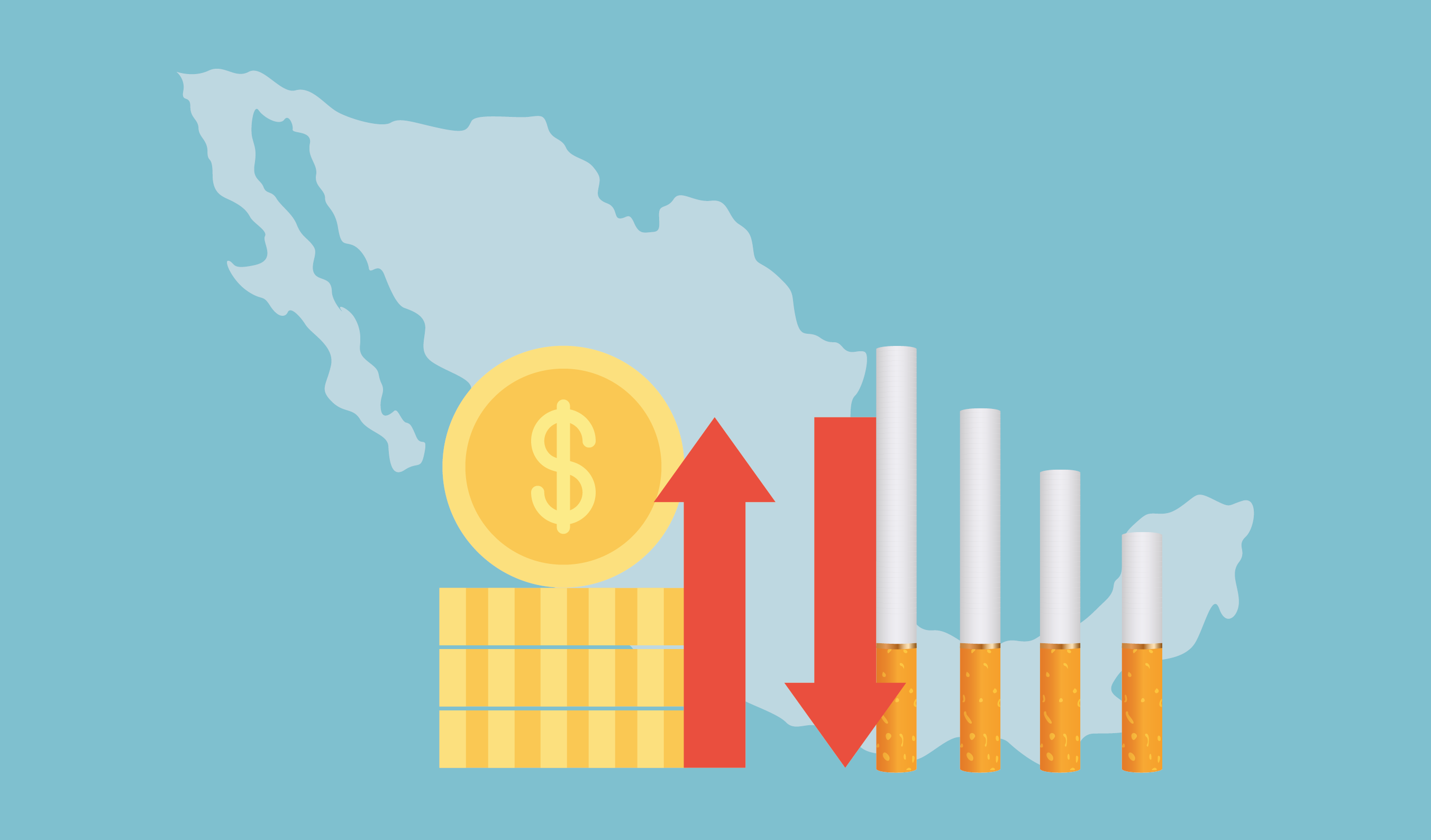In Mexico, the specific taxes levied on tobacco to mitigate the negative externalities and internalities caused by tobacco consumption are still below the minimum recommended by the World Health Organization
Both the Value Added Tax (VAT) and the Special Tax on Production and Services (STPS) are levied on tobacco, which is considered a non-essential good.
The authors raise the question of how much tobacco consumption could be reduced if taxes were raised in Mexico.. They use a simulator of the Center for Economic and Budgetary Research (CIEP) for the IEPS on tobacco, which can be used to create scenarios on the fiscal policy applied to cigarette consumption. With this simulator, the CIEP calculates that with a 10% increase in the price of cigarettes, consumption would decrease by 4.2%.
An estimated 14.3 million people, equivalent to 15.3% of the population, smoke tobacco. For this reason, the tobacco tax scheme should be reviewed to reduce tobacco consumption and at the same time obtain more resources to finance public health services.


